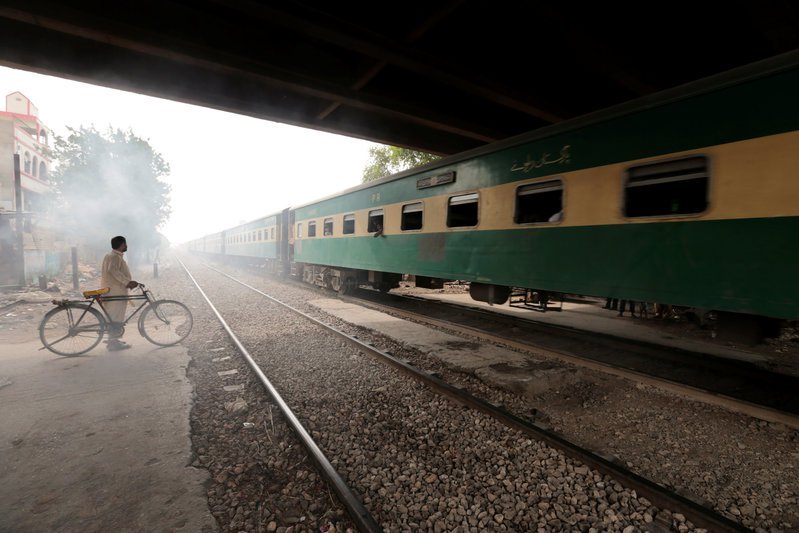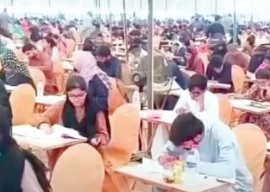
He was speaking at an all-parties conference, organised by the Joint Action Committee in collaboration with the Arts Council of Pakistan, Karachi, on Monday. Passing a resolution, speakers at the conference demanded that the federal, provincial and city governments provide 'decent' alternative residential facilities to all those whose housing has been affected by the restoration of the Karachi Circular Railway (KRC).
According to the resolution, following the apex court's orders issued in May, 2019, over 1,000 houses on the KCR land had been demolished so far, out of an estimated number of over 4,500 such houses. It stated that the residents were left to rely on makeshift tents for shelter, without any essential facilities such as water or toilets.
The participants at the conference also expressed the fear that over 10,000 houses would be demolished to clear the path for the ML-1 railway project.
Make KCR fully functional within three months: SC
Hasan, who delivered the keynote speech, pointed out that the properties belonging to influential persons, the government or defence agencies had not been touched. "Only poor people have suffered losses worth billions of rupees."
He recalled that the Supreme Court had issued directives to restore the beauty of Karachi on September 18, 2018. "Since then, the provincial and city governments have demolished over 6,000 shops in various areas of the city, resulting in the unemployment of 12,000 to 14,000 workers," he added.
It was further stated that over 1,800 shops were razed around Empress Market alone, affecting the livelihood of 6,500 workers in three markets, which had an annual turnover of more than Rs12 billion.
The noted urban planner highlighted the Sindh High Court's orders from October 20, 2018, to remove encroachments from around business centres and main roads. Over 40,000 notices had been served in line with this, he said, adding that encroachments around canals had also been removed.
He expressed the concern that the ML-1 project would create more problems for the poor.
Advocate Kazmi, the legal advisor of the action committee for KCR affectees, emphasised that the Supreme Court had ordered the railway secretary as well as the Sindh and Karachi governments to provide decent residential facilities in the city for the residents. "Why are the Supreme Court orders not being implemented?" he questioned.
"Before demolishing encroachments, strict action should be taken against those who allowed them [in the first place]," insisted Firdous Shamim Naqvi, the leader of the opposition in the Sindh Assembly. "The land mafia should be caught first."
Claiming that it would take three years to complete the KCR's financial close, he demanded that until it is completed, the affected houses should not be demolished. He further told Federal Railways Minister Shaikh Rasheed to deal with encroachments in Rawalpindi before turning to Karachi.
KCR: a dream project
Meanwhile, Mehboob Elahi, a representative of those affected by the ML-1 project, said that the area had been marked without conducting a survey of the residents. "Pakistan Railway wants to grab land in the name of KCR," he alleged, adding that a fresh survey should be conducted.
Seema Liaquat, of the Urban Resource Centre, narrated the plight of the residents, especially the women. "There are no toilets in the areas where homes have been demolished," she asserted. "Over 80 houses were razed in Quaid-e-Azam Colony and people are still living on the debris because they have not been provided alternative housing," she added.
"The provision of shelter and security is the main responsibility of the state," maintained Human Rights Commission of Pakistan co-chairperson Uzma Noorani. "But the present government has failed to provide [them]."
Published in The Express Tribune, February 18th, 2020.

1730959638-0/trump-(19)1730959638-0-165x106.webp)















COMMENTS
Comments are moderated and generally will be posted if they are on-topic and not abusive.
For more information, please see our Comments FAQ